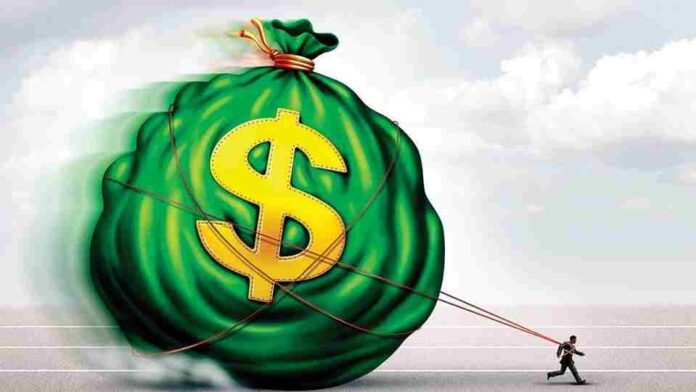The Government is to consider restructuring Sri Lanka’s domestic debt, but a final decision is yet to be taken shaking the country’s financial system, economic analysts said.
President Ranil Wickremesinghe told Parliament that all aspects will be looked into when restructuring Sri Lanka’s domestic debt.
“Some banks are saying they will not be able to face this. Then they must takeover this economy,” the President said.
He said that various people cannot make threats by holding a gun to the head.The President also noted that there are concerns that the stock market may collapse. He said that if the stock market collapses he will shut it down.
He also assured that there will not be any harm to the Employees Provident Fund (EPF). , President Ranil Wickremesinghe told Parliament.He said that all aspects will be looked into when restructuring Sri Lanka’s domestic debt.
“Some banks are saying they will not be able to face this. Then they must takeover this economy,” the President said adding that that various people cannot make threats by holding a gun to the head.
The President also noted that there are concerns that the stock market may collapse. He said that if the stock market collapses he will shut it down.
He also assured that there will not be any harm to the Employees Provident Fund (EPF).
If the government decides to restructure domestic debt financial systems may shake. Unless the Central Bank and government take necessary steps to protect the stability of financial institutions, we will see a peoples’ uprising again, several economic experts warned
Sri Lanka’s stocks, rupee, and bond markets hardly moved according to a statement by State Minister Shehan Semasinghe who said the government has not decided yet on restructuring local debts.
The markets have been expecting the worst with regard to local loans in Sri Lanka’s debt restructuring process including haircut, both on the return, and deferment of maturity. Financial analysts have warned of a banking sector collapse in the country.
Some analysts say people might protest in street if their pension funds are slashed under the local debt restructuring.
Sri Lanka faces a challenge to emerge from the continuing crisis. This background note argues that domestic debt restructuring (DDR) provides four benefits critical for the economy and country to emerge from the present crisis stronger and more resilient than before.
First, DDR provides a pathway toward solvency for the Government of Sri Lanka. Second, it provides the foundations for the stability of the economy (macro stability). Third, it reduces the likelihood of needing subsequent sovereign debt restructuring, and fourth, it facilitates the equitable sharing of the burden of the costs of the crisis.
